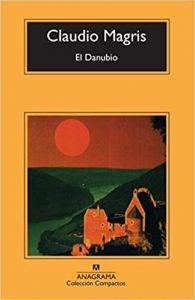Among the most veteran and recognized Italian authors, stands out a Claudio Magris He has become a writer of everything, with that license that age confers on those who have played the quarters in all kinds of battles.
In the absence of Andrea Camilleri Having become a total authority on Italian narrative, Magris picks up the slack even though he does not participate in the same genre. Because the issue in literature is that it is still understood that the older, the wiser, as in the past in power...
So looking at the Magris bibliography is already an act of reverence. Even more so when it is discovered that its fiction and non-fiction aspects regularly converge as tributaries that feed each other, composing a channel of literature and truth, of formal aesthetics but also of commitment.
Magris is one of those authors to alternate his works as a necessary ground to another literature that is more frugal in content and fleeting in support.
Top 3 recommended novels by Claudio Magris
The Danube
Sometimes it seems to me as if the seasoned writers of another era differ an abyss from the new authors that are emerging. It is not to detract from themes or resources, I mean more about the rhythm, the cadence.
It mostly happens with guys like Jose Luis Sampedro, Javier Marías or Magris himself. They are all writers willing to tell you their story. Whom you can imagine sitting leisurely at their desk, knowing that they have all the time in the world. More than anything because the false sense of control over time has a lot to do with not giving in to mutilating technological distractions and their routine rushes.
"The Danube", which has been described as "a wonderful journey through time and space", links up with the "tourisme éclairé" of a Stendhal or a Chateaubriand, and inaugurates a new genre, halfway between the novel and the essay , the diary and the autobiography, the cultural history and the travel book.
In the words of its author, the book is "a kind of submerged novel: I write about the Danubian civilization, but also about the eye that beholds it," and it was written "with the feeling of writing my own autobiography." Landscapes, passions, encounters, reflections: "The Danube" is thus the story of a "sentimental journey" in the manner of Sterne, in which the narrator travels the old river from its sources to the Black Sea, crossing Germany, Austria , Hungary, Czechoslovakia, Yugoslavia, Romania, Bulgaria while at the same time traveling through life itself and the seasons of a contemporary culture, its certainties, its hopes and its concerns.
A journey that reconstructs in the form of a mosaic, through the places visited and interrogated, the civilization of Central Europe, with the immeasurable variety of its peoples and cultures, capturing them in the signs of great History and in the minimum and ephemeral traces of everyday life, and identifying the precise ribs: the German presence, the weight of ethnic minorities and neglected cultures, the mark left by the Turks, the current Jewish presence.
Microcosmos
It happens back in the first year of every writer who begins writing a narrative. The theory of microcosms is quickly and necessarily learned. Something like that, the more capable one is of putting a cosmos in the bottle of a close story, the more capable one will be of making one's novel or story transcendental or at least enjoyable to read.
The point is to be crafty enough to do it. Magris does an exercise in narrative goldsmithing in this work, showing that even from the smallest, from the farthest corner of the world, the essences of all humanity can end up being aroused.
If The Danube covered a vast geographical and historical area, Microcosmos, awarded the Strega Prize for novels, serves as a guide in the discovery of increasingly reduced places.
From the description of the landscape, even in its most imperceptible details, from the account of minimal existences, of destinies, of passions, of comic or tragic vicissitudes, an erratic and fluctuating narrative emerges, like the current of a river.
Each of those worlds that are reflected and integrated in the parable of an existence lives in the simultaneous presence of the present and the past. Men are the protagonists, but also animals, stones and waves, snow and sand, borders, the presence of a loved one, an inflection of voice or a perhaps unconscious gesture ...
Snapshots
The vocational writer feeds on snapshots, on those flashes of life that are immortalized in a gesture, in a phrase or in a short phrase capable of containing all the meaning of a gesture.
The reader will find here short texts capable of capturing what tends to slip through the fingers, of portraying human behavior with insight and acidity, of observing the world with a sophisticated mixture of humor, melancholy, goodness and wisdom.
The result is a bouquet of delightful miniatures featuring varied themes, characters and situations: the city of Trieste; a comic episode lived at the Leo Castelli Gallery in New York that illustrates the impostures of avant-garde art; the ridiculous way in which Thomas Mann finds out about the start of World War II; publishers who impose happy endings on the authors they publish; the secret reason why a highly erudite and potentially mind-numbing conference fills up to overflowing; cultural congresses and sex; the loneliness of couples ...



